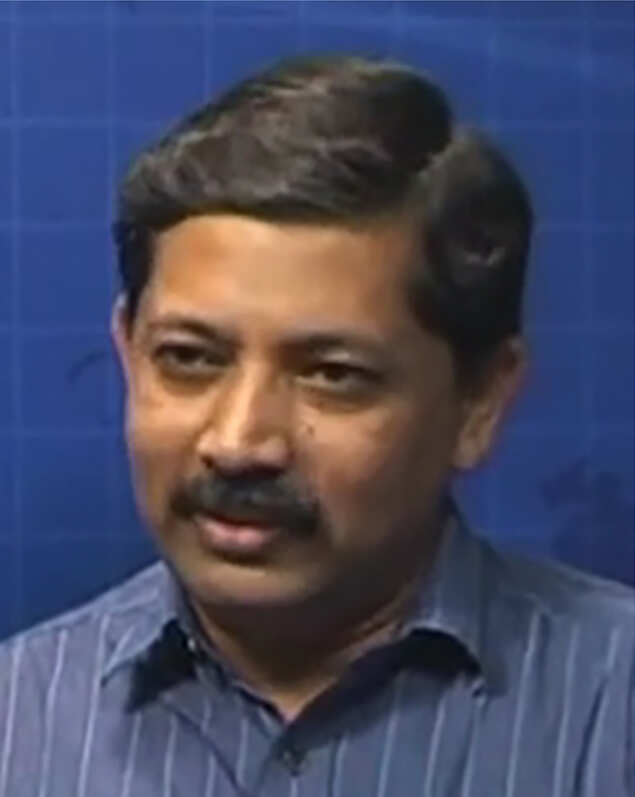Times Face-off: Madras HC has hit out at freebie culture but doles are not restricted to poll time. Two noted economists debate pros and cons of state support | India News
Surajit Mazumdar
Are ‘freebies’ a good idea? Set up in this way, this question almost instinctively invites an answer in the negative. After all, if everything that we use to satisfy our needs and wants ultimately has to be produced or created through human effort, how can the right to claim these without that effort be accepted as a norm? The underlying issue, however, gets obscured in the process and several implicit assumptions are made that are far from valid.
What are typically referred to as ‘freebies’ involve governments providing some facilities or services free of charge, or income (including in kind) support, to those whose income levels are low. The fear often expressed is that this would erode their incentive to strive for and contribute to the productive effort of society. The other side of the story is that since someone has to ultimately pay for these freebies, providing them involves imposing a penalty on those who are creating the wealth and the income of society. There are several problems, however, with this understanding:

The first problem is the assumption that the incomes that accrue to different individuals or households in society, before any taxation and subsidy measures, are basically proportionate to their contributions. Income generation, however, is a social process in which different people participate in different ways; who gets how much of the pie is contingent upon circumstances other than the quantum of their effort. Typically, those who get extraordinarily little have to work very hard — partly because returns to labouring activity in India are very low and partly because some of them do unpaid work to help sustain their low-income household. Even those who are unemployed are not so by choice and therefore cannot be called idlers. On the other hand, those who corner a large share of the pie often do so on the basis of ownership of wealth and inherited advantages, and not their effort alone, advantages that high income also allows them to accumulate further. There is nothing natural about the gross inequality that results — it is an outcome of a social process. There is therefore also nothing unnatural about society using the mechanism of taxation and public expenditure to ameliorate that. And for those who are too young or too old to work, every society has to find some way of providing for satisfaction of their needs. We can hardly claim to be doing a stellar job on these fronts.
It is also worth remembering that the so-called recipients of freebies also pay taxes out of their measly incomes. In India, two-thirds of the tax revenues of central and state governments come from indirect taxes, and their ‘indirectness’ lies in the fact that those who transfer these taxes into the government’s coffers and those who ultimately pay them are different.
So those who are too poor to pay income tax also pay taxes every time they make purchases in the market and their taxes constitute a large proportion of tax revenues in India.
The rich, and the corporate sector are also the beneficiaries of ‘freebies’. Everyone partakes of the benefits of collectively provided services, but some are able to do so more advantageously — think of things like roads or the administration of justice. There are many costs that have to be borne in ‘running the country’ from whose economic life flow benefits which are extremely skewed in distribution. There is now increasingly a trend of even public services being offered through modes that enable private businesses, from which the wealthy benefit to profit: think of what’s happening with vaccines in India or of government-sponsored health insurance. Finally, there are of course several things that are more obviously freebies to the wealthy — provision of land and other resources at low cost, transfer of assets from public to private ownership, innumerable tax concessions, etc. Some of these are couched as ‘policy’ and some are the result of discretionary decisions taken for individual benefits.
India is a highly iniquitous society in which taxation of the wealthy as well as public expenditure are extremely low. This structural reality is also reproducing itself by generating limited employment opportunities which helps maintain a world of cheap labour. Between what they earn from work and from the so-called freebies they receive, the majority of Indians are unable to contribute to creating the market demand which will generate the economic activity in which they will be able to find both employment as well as earning. This, rather than millions idling away because they are on some dole, is the dominant reality of the country. In this context, declaring ‘freebies’ bad is an idea that is not really about eliminating freebies. It is about insulating the political process from effecting any change in this reality — a reality where some benefit at the expense of most.
(The writer is a professor of economics at Jawaharlal Nehru University)
AGAINST
This entrenched culture of handouts enslaves rather than empowers
Amartya Lahiri
The Madras High Court recently made some trenchant observations regarding the practice of doling out freebies around election time in Tamil Nadu. One cannot but applaud the court’s thoughtful observations. The debate on freebies is almost a non-issue; the idea should be decisively opposed.
The time-honoured electioneering strategy of freebies is not the exclusive domain of political parties in Tamil Nadu. It has become endemic to elections in both state and parliamentary elections. Promises to write off debts, provide free electricity, free rice, cash handouts to targeted voting blocs, subsidised cooking gas, and many more, are familiar to voters across the country.

These electoral strategies or vote-buying gimmicks are not the exclusive domain of communist, socialist or populist political parties. Parties across the ideological spectrum have found the siren-call of freebies hard to resist. Indeed, Indian elections have been trending towards competitive populism for a number of decades now.
The ecosystem of freebies has not remained limited to targeted handouts for the poor. The expectation of state support is ingrained in private businesses and is the reason for repeated bailouts of banks swamped with non-performing assets (NPAs), regulatory forbearance of big borrowers not repaying their loans, lenient disclosure norms on stock exchanges for firms defaulting on their bank loans, non-payment of electricity bills that renders most electricity distribution companies insolvent, etc.
The expectation of government handouts can also be found in the myriad agitations across the country by various groups demanding reservations in higher education and employment on the basis of caste and ethnic identities. As a result, 70 years after the adoption of the Constitution, reservations have both persisted and increased in scope. We are also regularly treated to the spectacle of parties promising additional reservations to targeted ethnic groups around every election season. Sadly, all this makes a complete mockery of the original view of the Constituent Assembly that reservations would remain in place for just ten years. But that, in the parlance of the times, is just collateral damage.
The culture of freebies can also be seen in Centre-state negotiations. States now lobby for special BIMARU status in order to acquire additional central grants and packages. Rather than advertising positive achievements and success, we see some states aggressively and regularly advertising their own ineptitude, all in order to acquire special packages. This advertisement of their own incompetence is apparently not viewed by the state politicians as a potential electoral liability.
It is clear that significant parts of the polity in India have gradually been turned into entitlement-seeking individuals and groups. This is but the logical culmination of a culture groomed in images and experiences of public policy steeped in grants, subsidies, protection, reservations and regulatory forbearance.
The Indian experience is a salutary reminder of the danger of freebies. They first delink outcomes from effort, which then gradually induces a condescension towards effort and the seeking of easier paths to attaining goals. A byproduct of this is a collective corruption of the psyche. Taking shortcuts and successfully cornering freebies, instead of being derided, are applauded as being “clever”.
All of this is not to discount the role of public programmes of social insurance against health and employment setbacks, or systemic constitutional measures to redress historical injustices through reservations. But these programmes have to be exceptions, limited in time, and directed at very selected individuals and groups. Moreover, they need to be designed as a response to clearly identified market failures with an accompanying argument as to how the specific programme will solve the failure. Instead, what we have is a list of expanding entitlements both in terms of magnitude and coverage.
Nothing corrodes the spirit of man more than alienating him from his dignity by degrading the value of work ethic and industry. Yet that is precisely what an entrenched culture of dole and freebies achieves. Gifting freebies is akin to peddling an intoxicant to people that sickens the mind and erodes pride. Instead of empowering man, they enslave man.
It is probably most appropriate to quote the father of the nation Mahatma Gandhi, a man who appears to be receding in the collective consciousness of the country, who said it all much more eloquently almost a hundred years ago: “Ahimsa would not tolerate the idea of giving a free meal to a healthy person who has not worked for it in some honest way, and if I had the power, I would stop every Sadavrata where free meals are given. It has degraded the nation and it has encouraged laziness, idleness, hypocrisy and even crime. Such misplaced charity adds nothing to the wealth of the country, whether material or spiritual, and gives a false sense of meritoriousness to the donor.” (Young India, 13/8/1925).
(The writer is Royal Bank Research Professor of Economics, University of British Columbia)


